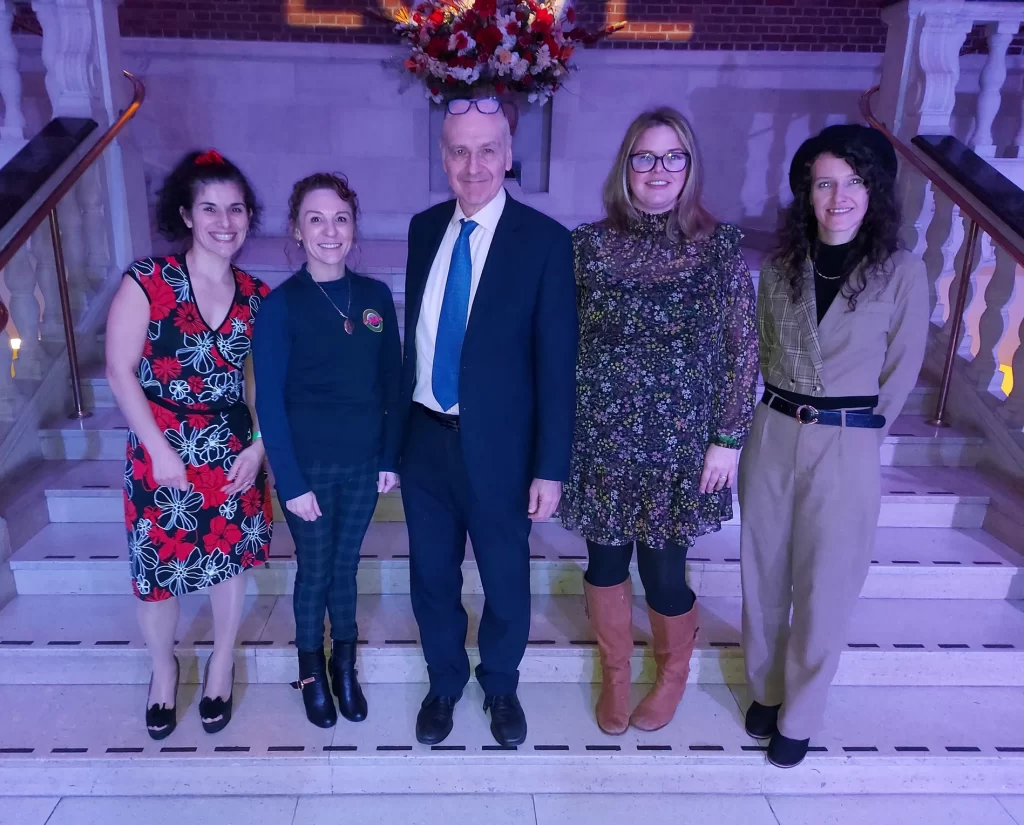Education
Welsh Relationships and Sexuality Education Code: Parental choice vs children’s education

A GROUP calling itself Public Child Protection Wales is fundraising for a legal challenge to the Welsh Government’s Relationships and Sexuality Education Code.
The Code passed the Senedd as part of the Curriculum for Wales.
The group claims to have raised £13,000 of the £100,000 it says it needs to bring the case.
It has already acquired the services of a barrister, Paul Diamond.

CODE ENDS PARENTAL CHOICE
The Code makes Relationships and Sexuality Education compulsory and ends a parent’s right to exclude their children from such lessons.
Public Child Protection Wales says it is for parents to decide the appropriateness of Relationships and Sexuality Education for their children and not for the state to intervene in their right to keep their children either ignorant or enlightened on the subject.
While PCP Wales claims to be a non-party political group, its cause has been taken up by extremist and fringe right-wing organisations who have tried to jump on the bandwagon to publicise their political agendas.
PCP Wales says its aims are “to promote a high standard of Safeguarding and raise awareness of exploitation and abuse of children. We will challenge policies that fail to safeguard and fight for additional investment in Children and young people’s services.”
Its intervention in Relationship and Sexuality Education extends “safeguarding” to include a final parental say over whether a child receives that education from their parents or teachers.
PEMBROKESHIRE AND PCPW
A case against Paul Dowson, county councillor for the Pembroke Dock Central Ward, relating to PCPW’s campaign goes before the Adjudication Panel for Wales later this year.
Councillor Dowson published a Facebook post stating that 0-3-year-olds “will” be taught about masturbation and that the new RSE curriculum “includes teaching 13-year-old boys and girls about anal sex”.
That is untrue, and the Ombudsman described the first of those allegations as particularly “outrageous and unpleasant”.
In an email to a fellow councillor, Councillor Dowson said RSE lesson plans teach 3-year-olds about masturbation and 11-year-olds and upwards about bondage, anal sex, and facial ejaculation.
Those untrue statements do not originate with Paul Dowson. They derive from misinformation peddled by individuals trying to outrage the public and incite opposition to the new Code.
The Ombudsman concluded: “I have seen no evidence that Councillor Dowson has evidence as to the content of the RSE curriculum or its lesson plans over and above that which is publicly available from Welsh Government.”
As a result, the Ombudsman concluded Paul Dowson’s posts were disinformation and alleged they brought his office as councillor into disrepute.
Paul Dowson rejects the allegations and criticisms, which form one part of a disciplinary case to be heard later this year.
CODE CONTENT UNPUBLISHED
While that might appear irrelevant to the campaign headed by PCP Wales, it goes towards the continuing miasma of disinformation, misinformation, and alarmism published on its Facebook page.
While RSE is taught in many countries in one form or another, teaching methods vary. In short: “For Wales, do not see “England”.
Moreover, as the lesson plans and Code content remain – as yet – unpublished, any information about alleged lesson plans and the course content is speculation at best and spurious at worst.
Therefore, the key issue cannot be what the course will teach – or even what campaigners imagine it will teach.
Instead, the core of any legal action against the Welsh Government must be on either “religious exemption” – the position before the new Curriculum became law – or an infringement on a parental choice about what their children are taught.
The religious exemption would be an arguable point only after the Welsh Government issues its guidance on the Code and lessons’ content. There is no engagement of any potential religious right to refuse until then.
PARENTAL CHOICE AND THE RIGHT TO LEARN
So, the case must centre on the question of parental choice.
PCP Wales is clear that’s their main objection – apart from scare stories about what the Welsh RSE Code might mandate.
They say: “[W]e must fight the legislation which mandates this over parental rights, preventing the parent carer from acting in the child’s best interest and be the judge as to what is age appropriate. It is time the adults shouldered the responsibility of sex education in the form of appropriate Safeguarding.”
PCP Wales trusts neither the Welsh Government, local authorities, maintained schools, headteachers, teachers, nor school governors to act appropriately or to gauge what is age-appropriate for a child. They assert parental autonomy and parental choice as the determining factor in what children learn in school.
Carried to absurd lengths, that train of argument would give parents control of everything taught in schools, or at least an ideological say over what their children learn about literature, history, or science.
LEGAL SERVICES OR SUPPORT
PCP Wales has instructed the independent barrister Paul Diamond to fight their case.
According to his website, Paul Diamond is “the leading barrister on the law of religious liberty, including matters of both ethical and social conscience.
“He combines his considerable strength in the field of religious liberty with his knowledge of public and European law. Paul is a specialist in European Human Rights law, EU law and certain aspects of public law.
“He has served as Standing Counsel to the Christian Legal Centre, a sister organisation of Christian Concern as well as the Keep Sunday Special Campaign.”
On its website, the Christian Legal Centre says: “We’re here to safeguard the freedom of Christians to live and speak for Jesus Christ, and to provide legal support for those taking a stand for Jesus and the truth that flows from him.”
The Christian Legal Centre is not a regulated legal practice and has no standing to instruct a barrister to act on behalf of clients.
Its interventions in public interest cases have been the subject of strong judicial criticism, which it rejects.
CLC’s interventions in cases are not meritless.
Freedom of religion and speech underpin civil society. However, the law is secular, created by legislatures, and subject to judicial interpretation.
However, to show the Welsh Government acted in such a way as to either infringe a protected right, whether relying on statutory breach or legal precedent, PCP Wales will have to demonstrate a real loss of a real existing right protected by real law.
THE WELSH GOVERNMENT RESPONDS
A spokesperson said: “It is disappointing that this group continues to promote incorrect and misleading claims about Relationships and Sexuality Education in Wales’s new curriculum.
“Topics like online safety, consent, and sexual health are all included in the Code, but at developmentally appropriate stages so learners aren’t exposed to things that aren’t appropriate to their age and development.
“At a younger age, for example, children will be taught about treating each other with kindness and empathy.
“As children grow older, they will gain an understanding of topics such as online safety, consent, and sexual health – all of which will be handled in a sensitive way.
“These reforms have been welcomed by a number of respected organisations including the NSPCC, the Children’s Commissioner’s Office, and Welsh Women’s Aid.”
Education
Industry insight helps marine cadets chart career course

Shipping professional visits Pembrokeshire College to showcase real-world opportunities on the Milford Haven Waterway
STUDENTS training for careers at sea were given a first-hand look at life in the maritime industry after a leading shipping professional visited Pembrokeshire College to share his experience of operations on the Milford Haven Waterway.
Toby Forester, from Williams Shipping, met with the College’s Enhanced Marine Engineering Pre-Cadets to explain how commercial shipping, marine services and logistics work together to keep one of the UK’s busiest energy ports moving.

Learners heard about the wide range of activity taking place daily on the estuary, including vessel movements, specialist support craft, safety management and the coordination required to operate safely and efficiently in a working port environment.
Staff said the session gave students valuable real-world context, helping them understand how the engineering skills they develop in workshops and classrooms directly translate into careers within the maritime and energy sectors.
The visit forms part of the College’s wider effort to strengthen links between education and industry, ensuring young people are exposed to employers and career pathways while still in training.
College representatives said experiences like this help build confidence and ambition among learners considering technical roles at sea or ashore.
They thanked Williams Shipping and Mr Forester for supporting the next generation of marine engineers and helping inspire future talent in Pembrokeshire’s coastal economy.
Photo caption: Marine engineering pre-cadets at Pembrokeshire College welcomed an industry talk from Williams Shipping about operations on the Milford Haven Waterway (Pic: Supplied).
Education
Funding axe falls on Welsh digital education scheme as £1.4m handed to English uni

Face-to-face training replaced with online resources in decision branded a ‘slap in the face’ for Wales
A LONG-RUNNING Welsh digital education programme that has trained thousands of teachers and pupils every year is facing an uncertain future after Welsh Government funding was cut and redirected to an English university.
Technocamps, a Swansea University-based project which has operated across Wales for twenty-two years, has described the decision as a major blow to digital skills development, with staff already losing jobs and schools left without in-person support.
Instead of renewing Technocamps’ funding, ministers have awarded £1.4 million under the Curriculum for Wales Grant Support Programme to the University of York to deliver mainly online learning resources, with only limited face-to-face sessions in what are described as “priority areas”.
Critics say the move risks replacing hands-on, bilingual classroom support with generic remote materials.
Each year Technocamps provides direct training to more than 900 teachers and delivers workshops to over 30,000 young people in schools across Wales, working face-to-face with pupils to improve coding, computing and digital literacy.
The programme has been widely credited with helping schools meet the growing demands of the Curriculum for Wales and tackling shortages in specialist computing skills.
‘Bitter disappointment’
Plaid Cymru MS Sioned Williams, who represents South Wales West, said she had met the Technocamps team again this month and would be writing to the Cabinet Secretary for Education seeking answers.
She said: “The necessity of good quality, face-to-face digital skills training has never been more important in this digital age.
“I’ve seen firsthand how engaging and effective a Technocamps workshop is and what makes this programme so great is that it is made in Wales, delivered bilingually through our network of universities and is able to reach every school and teacher.
“That’s why the news that Welsh Government has cut funding is so bitterly disappointing.
“At a time when Welsh universities are in financial crisis, it’s an additional slap in the face that what little funding has been allocated has gone to a university in England.”
Jobs lost across Wales
Beti Williams MBE, the programme’s founder and patron, said the funding decision had already resulted in redundancies.
She said: “The end of Technocamps funding has led to the unemployment of teacher trainers at universities across Wales, leaving nearly 1,000 school teachers who rely on our bespoke in-person training and support in limbo.
“Replacing Technocamps with predominantly standard online courses is an insult to Welsh universities. Online courses, of which there is unlimited choice, offer nothing to struggling teachers who rely on tailored, face-to-face help.”
A petition calling for funding to be restored has gathered more than 4,000 signatures and is now being considered by the Senedd Petitions Committee.
Questions over value for money
The decision has also raised questions about value for money.
According to supporters, the £1.4m grant awarded to York is almost double Technocamps’ previous annual funding, yet delivers fewer in-person services.
There are also concerns that only seven per cent of the wider Curriculum for Wales grant funding over the next three years is allocated to science and technology subjects.
Education campaigners warn that reducing practical support in computing and digital technology could widen skills gaps at a time when Wales is trying to attract high-tech industries and improve economic productivity.
Digital divide fears
Teachers have long argued that in-person training is essential, particularly for schools with limited IT expertise or rural connectivity challenges.
Technocamps staff say online-only provision risks leaving some schools behind.
Ms Williams added: “It’s so important that we keep this crucial skills and knowledge in Wales. The thought that we could lose this valuable resource makes no sense at a time when the need for digital competency has never been greater.”
Welsh Government has been asked to explain why the funding was awarded outside Wales and whether the impact on Welsh university jobs and school support was assessed before the decision was made.
Community
Haverfordwest students win national King’s Trust honour

Community mural project earns Wales title and trip to London finals
A GROUP of young people from Haverfordwest High School are celebrating a major achievement after being crowned Wales country final winners at the King’s Trust Awards 2026.
The students secured the JD Foundation Community Impact Award and will now represent Wales at the King’s Trust National Awards in London.
The award recognises an outstanding community project delivered through the King’s Trust Achieve Programme, a Key Stage four GCSE option offered at the school and delivered locally by Pembrokeshire Youth Service.
Led by school-based youth worker Ell Lewis, the programme supports pupils who may find traditional academic routes challenging, including those facing emotional, social or caring responsibilities.
As part of their Community Impact project, the group identified a vandalised pedestrian tunnel in Haverfordwest that is used daily by students travelling to and from school. Determined to improve the space, they worked together to design and paint a large-scale mural celebrating wellbeing, identity and local pride.
The once run-down underpass has now been transformed into a colourful and welcoming feature, drawing praise from residents and passers-by.
Community members described the artwork as uplifting and inspiring, with many noting the positive difference it has made to young people using the route each day.
One participant said: “This project is our legacy. We’ve created something lasting that represents who we are and where we come from. It’s amazing what a cup of tea and a conversation can lead to.”
Mr Lewis said the benefits extended far beyond the finished mural.
He said: “Beyond its physical impact, the project has helped the young people build confidence, teamwork, leadership and communication skills. Their courage, resilience and ambition can’t be faulted. I am incredibly proud of them. All members of the group have since progressed into further education or employment.”
The students secured funding through the Pembrokeshire Youth Bank Grant and received support from local businesses including GD Harris & Sons. They also worked with local councillors, the local authority and local artist Lloyd Griffiths.
Additional funds were raised through school-led activities including bake sales and raffles.
The group will now travel to London to compete in the national finals, representing both their school and Pembrokeshire on a national stage.
Cover photo:
Proud moment: Members of the Haverfordwest High School group at the Wales King’s Trust Awards ceremony (Pic: Supplied).
-

 Health4 days ago
Health4 days agoConsultation reveals lack of public trust in health board
-

 News5 days ago
News5 days agoCaldey still unsafe, survivors warn — despite Abbey’s reform claims
-

 Community5 days ago
Community5 days agoPembrokeshire students speak at national Holocaust Memorial Day event
-

 News7 days ago
News7 days agoWales warned against single police force as Lib Dems cite Scotland ‘lesson’
-

 Crime7 days ago
Crime7 days agoMilford Haven man appears in court charged with burglary and GBH
-

 Business7 days ago
Business7 days agoDuke of Edinburgh Inn in Newgale on the market for £325,000
-

 Local Government6 days ago
Local Government6 days agoTribunal over former Neyland councillor’s conduct adjourned
-

 News5 days ago
News5 days agoKurtz raises Gumfreston flooding in the Senedd as petition deadline nears































